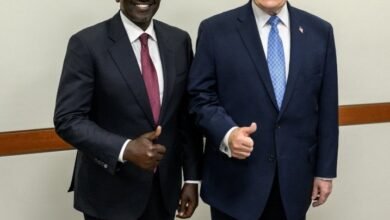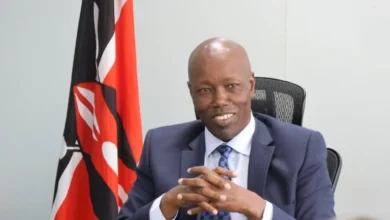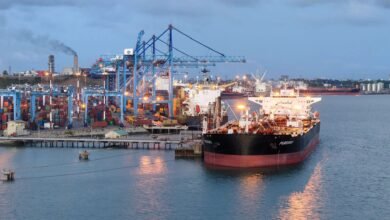
Nigeria has said it is indefinitely suspending Twitter’s operations in the country, two days after Twitter deleted a post published by the country’s Head of State Muhammadu Buhari.
The tweet is said to have threatened to punish regional secessionists for attacks on government buildings.
Time for start of suspension has not been specified.
The news, which the information ministry announced on Twitter itself, sparked outrage among social media users in Nigeria, where Twitter is hugely popular.
Information Minister Lai Mohammed said the government had acted because of “the persistent use of the platform for activities that are capable of undermining Nigeria’s corporate existence”.
“The announcement made by the Nigerian Government that they have suspended Twitter’s operations in Nigeria is deeply concerning,” the company said in a statement.
“We’re investigating and will provide updates when we know more.”
On Wednesday, the United States tech giant said Buhari’s post threatening to punish groups blamed for attacks on government buildings had violated Twitter’s “abusive behaviour” policy and suspended his account for 12 hours.
“Many of those misbehaving today are too young to be aware of the destruction and loss of lives that occurred during the Nigerian Civil War,” wrote Buhari, in reference to the 1967-70 conflict. “Those of us in the fields for 30 months, who went through the war, will treat them in the language they understand.”
Twitter sets office in Africa
In April, Lai had reacted angrily when Twitter chose neighbouring Ghana for its first African office.
He said the company had been influenced by media misrepresentations of Nigeria, including reports of crackdowns on protests against police brutality last year.
Demonstrators mobilising under the #ENDSARS hashtag had used social media to organise, raise money and share alleged proof of police harassment.
Twitter’s Chief Executive Officer Jack Dorsey had tweeted at the time to encourage his followers to donate.
In the protests’ wake, Mohammed called for “some form of regulation” on social media to combat “fake news.”
The move by Nigeria, where Twitter enjoys biggest following was strongly castigated by rights groups by social media users.
“This repressive action is a clear attempt to censor dissent & stifle the civic space,” Human Rights Warch researcher Anietie Ewang said on Twitter.
Amnesty International’s Nigeria branch also condemned the move and called on authorities to “immediately reverse the unlawful suspension and other plans to gag the media, repress the civic space, and undermine Nigerians’ human rights”.





